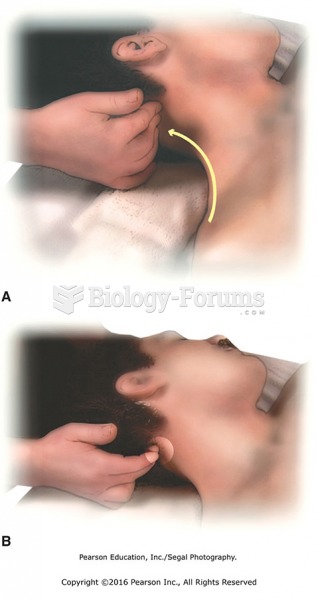|
|
|
Tobacco depletes the body of vitamins A, C, and E, which can result in any of the following: dry hair, dry skin, dry eyes, poor growth, night blindness, abscesses, insomnia, fatigue, reproductive system problems, sinusitis, pneumonia, frequent respiratory problems, skin disorders, weight loss, rickets, osteomalacia, nervousness, muscle spasms, leg cramps, extremity numbness, bone malformations, decayed teeth, difficulty in walking, irritability, restlessness, profuse sweating, increased uric acid (gout), joint damage, damaged red blood cells, destruction of nerves, infertility, miscarriage, and many types of cancer.
In 1844, Charles Goodyear obtained the first patent for a rubber condom.
Patients who cannot swallow may receive nutrition via a parenteral route—usually, a catheter is inserted through the chest into a large vein going into the heart.
Multiple experimental evidences have confirmed that at the molecular level, cancer is caused by lesions in cellular DNA.
Warfarin was developed as a consequence of the study of a strange bleeding disorder that suddenly occurred in cattle on the northern prairies of the United States in the early 1900s.
 Muskox populations remain in the Arctic all year, though they migrate to higher elevations in the wi
Muskox populations remain in the Arctic all year, though they migrate to higher elevations in the wi
 Mononucleosis is caused by the Epstein–Barr virus. Symptoms of the infectious disease are swollen pa
Mononucleosis is caused by the Epstein–Barr virus. Symptoms of the infectious disease are swollen pa





